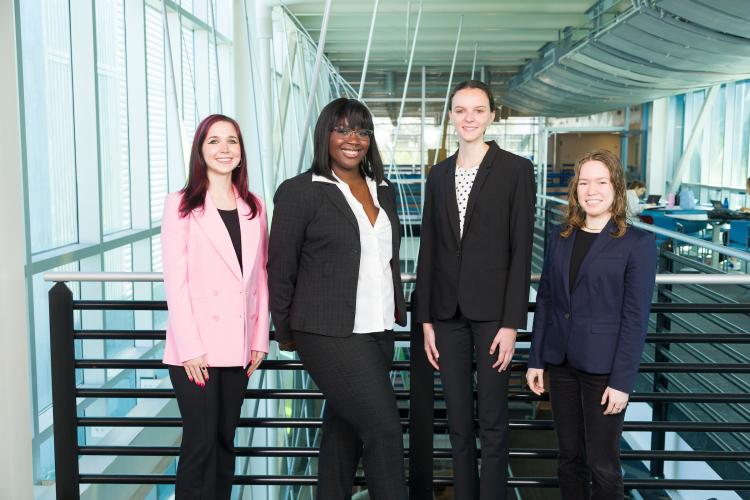
As Florida’s population grows, surface water suffers and the drinking water supply decreases. The Florida Department of Environmental Protection (FDEP) introduced Senate Bill 64 to address these issues. This bill requires wastewater treatment plants to develop a plan to reuse the water they process (effluent). Instead of discharging effluent. Rather than discharging effluent into surface water, which can cause eutrophication, the water will be reused.
This project highlights the importance of reclaimed water, which is highly treated wastewater that meets government standards to ensure public and environmental safety. We aimed to protect water sources from eutrophication and reduce unnecessary drinking water use.
Our team designed a reclaimed water distribution system using water from the St. Andrews Wastewater Treatment Plant in Panama City, FL. Although they weren’t currently using reclaimed water, the deadline for Senate Bill 64 was 2032, so planning for this effluent was a priority.
Our system reused 2.38 million gallons of wastewater daily. It included four steel storage tanks with a 5 million gallon capacity, a duplex pump station and roughly 4.2 miles of pipeline. We used reclaimed water to replace drinking water at local industries for processes like pressure washing, paint-making and pipe casting. We also used it to irrigate over 24 acres of local parks and fields.
Despite challenges including limited funding, long pipelines and restricted space in a growing city, this project shows how smaller cities can successfully use reclaimed water systems to protect water bodies and conserve drinking water.
